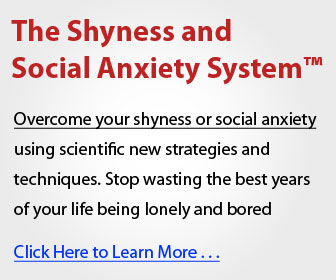Anxiety has become one of the most common challenges of modern life. From overwhelming work demands to relationship pressures, financial concerns, and constant digital stimulation, many people experience tension, worry, and nervousness every day. While medications can be helpful for some, a growing number of individuals are searching for a natural way to relieve anxiety that feels safe, sustainable, and supportive of long-term emotional well-being. Understanding which natural methods truly work can help you regain balance, improve mental clarity, and feel more grounded in your daily life.
Why Natural Anxiety Relief Is Becoming More Popular
Many people are drawn to natural approaches to anxiety because they address the root causes rather than just masking symptoms. Holistic methods focus on calming the nervous system, regulating hormones, supporting brain health, and improving overall lifestyle patterns. They can be used alone or alongside professional care and are suitable for individuals who want gentle, non-chemical ways to manage stress.
In addition, natural techniques often support other areas of wellness—such as sleep quality, digestion, and mood stability—making them valuable for long-term mental health maintenance.
How Anxiety Affects the Mind and Body
Anxiety is not just an emotional experience; it has physical effects throughout the body. The brain activates the stress response system, releasing cortisol and adrenaline that prepare the body for danger. When stress is constant, these chemicals remain elevated, leading to muscle tension, poor sleep, digestive issues, racing thoughts, and difficulty focusing.
Using a natural way to relieve anxiety helps interrupt this stress cycle, allowing both the mind and body to return to a calmer baseline.
The Role of Breathing in Calming Anxiety
One of the most effective natural ways to reduce anxiety is deep, intentional breathing. Shallow breathing tells the brain that danger is present, while slow breathing signals safety. Techniques such as belly breathing, box breathing, and the 4-7-8 method activate the parasympathetic nervous system, soothing panic and restoring emotional equilibrium.
Just one to two minutes of deep breathing can slow the heart rate, reduce muscle tension, and improve mental clarity, making it an accessible tool for anxiety relief at any time of the day.
Herbal Remedies That Support Anxiety Relief
Herbs have been used for centuries as a natural way to relieve anxiety. Some well-known options include chamomile, passionflower, lavender, ashwagandha, and lemon balm. These plants contain compounds that help reduce nervous system overstimulation and promote peacefulness.
Lavender is particularly powerful for calming the mind, whether used as essential oil, tea, or aromatherapy. Ashwagandha supports balanced cortisol levels, reducing stress reactivity over time. Chamomile helps soothe both the mind and digestive system, which is useful because anxiety often affects the gut.
Physical Activity as a Natural Anxiety Therapy
Movement is one of the most reliable natural ways to reduce anxiety because it boosts endorphins, stabilizes hormones, and reduces muscle tension. Exercise doesn’t have to be intense; even a simple 20-minute walk can dramatically relieve stress.
Activities such as yoga, tai chi, pilates, and stretching combine mindful breathing with gentle movement, creating a strong calming effect. Outdoor exercise also offers the added benefits of sunlight, fresh air, and connection with nature, all of which help reduce anxiety.
Nutrition and Gut Health Influence Anxiety Levels
Emerging research shows a powerful connection between the gut and the brain. An imbalanced gut microbiome can increase inflammation and affect neurotransmitters such as serotonin, which regulates mood. Improving gut health can therefore be a natural way to relieve anxiety.
Foods like leafy greens, berries, bananas, nuts, avocados, and fermented products support the body’s stress response. Reducing sugar, caffeine, and highly processed foods helps prevent blood sugar spikes that can worsen anxious feelings.
Magnesium-rich foods, such as spinach and pumpkin seeds, also help relax muscles and support calmer mood patterns.
The Power of Mindfulness and Meditation
Mindfulness practices reduce anxiety by training the brain to stay in the present moment instead of worrying about the future. Meditation helps calm repetitive thought patterns and promotes emotional resilience. Even short sessions of five minutes a day can reduce panic, improve concentration, and ease restlessness.
Guided meditations, grounding exercises, and mindfulness-based stress reduction practices are all effective natural ways to relieve anxiety and offer long-term benefits.
Sleep: The Often Overlooked Anxiety Solution
Many people underestimate how strongly sleep affects anxiety. Lack of rest increases cortisol, reduces emotional regulation, and disrupts the brain’s ability to process stress. Creating a nighttime routine—such as dimming lights, avoiding screens, drinking herbal tea, or listening to calming sounds—can drastically improve sleep quality.
Good sleep hygiene is one of the most powerful natural ways to reduce anxiety because it supports both mental and physical restoration.
Journaling as a Simple but Effective Anxiety Reliever
Writing down worries helps release mental tension and organize thoughts. It gives the brain a way to process emotions rather than storing them internally. Gratitude journaling, expressive writing, or setting intentions can shift the mind toward more positive perspectives and reduce overall stress.
This method is simple, cost-free, and highly therapeutic for individuals who struggle with racing thoughts.
Social Connection and Emotional Support
Humans are social beings, and meaningful connections with others are essential for emotional health. Talking to someone you trust, spending time with loved ones, or joining supportive communities can be a natural way to relieve anxiety because it reduces feelings of isolation and strengthens emotional resilience.
Even short interactions with compassionate people can lower stress hormones and increase feelings of safety.
Nature as a Natural Tranquilizer
Spending time in nature is one of the most underrated natural ways to reduce anxiety. Walking in a park, sitting near water, gardening, or being surrounded by greenery can calm the nervous system and lift the mood. Natural environments help slow down the mind, reduce sensory overload, and promote peace.
Studies show that as little as 10 minutes outdoors can lower anxiety levels significantly.
Why Combining Multiple Natural Approaches Works Best
The most effective natural way to relieve anxiety often involves combining several methods that work together to support overall well-being. Breathwork calms the mind, exercise releases tension, nutrition improves mood chemistry, mindfulness enhances focus, and sleep restores balance.
When used consistently, these approaches retrain the brain to respond more calmly to stress, creating long-term emotional stability.
The Value of Supporting Your Body Holistically
A natural way to relieve anxiety doesn’t just target symptoms; it helps reshape the lifestyle patterns causing stress in the first place. By supporting the nervous system, improving sleep, eating nourishing foods, practicing mindfulness, and nurturing connections, you strengthen all the systems that contribute to mental health.
Taking a holistic approach allows your mind and body to work together as a unified system, making you more resilient, centered, and capable of handling life’s challenges with greater ease.


